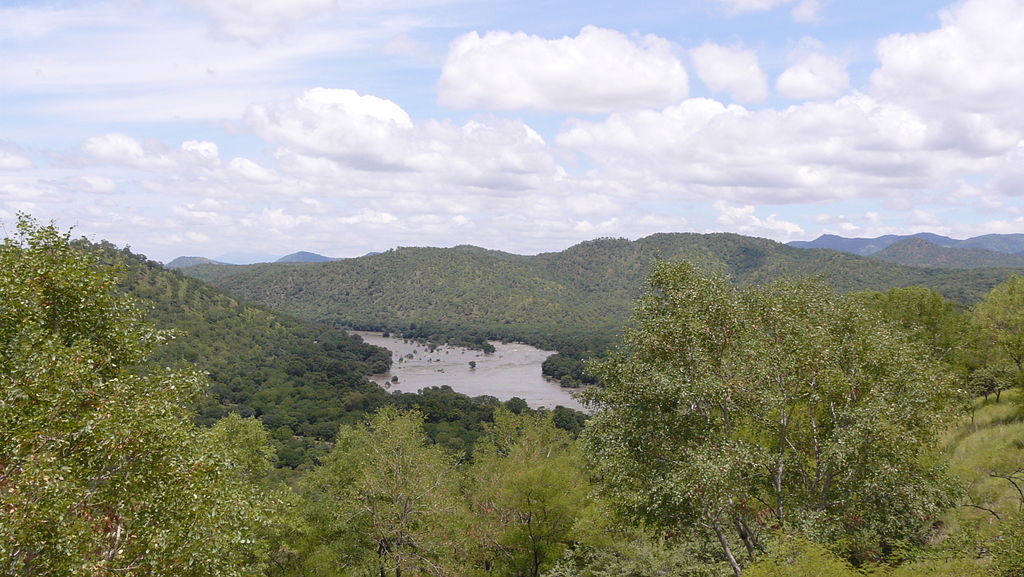Activists urge the government to identify and demarcate the borders of Western Ghats and initiate village-level mitigating measures.

A view of the environmentally sensitive Western Ghats. (Creative Commons)
Environment experts and activists have expressed concern over the Karnataka government successfully lobbying with the Centre to put on hold its notification of the Western Ghats as an Ecologically Sensitive Area (ESA).
With the notification put on hold — and a new, state-level committee set to study the issue yet again — the activists, while stressing the importance of preserving the ghats, also underlined the need to engage with the locals of the region before any fresh decision is taken.
“The Western Ghats region should be declared as ESA — but by taking the people of the region into confidence. It is necessary to preserve the ghats to have a safe and sound environment,” Hassan-based Kishore Shirady told South First.
Giridhar Kamat, another environmental activist, too, underlined the need for involving the locals before declaring the ghats as ESA: “The Western Ghats are an irreplaceable ecological asset as it is home to water sources, hilly ranges, biodiversity. This can be preserved only by taking stakeholders of the ghats into consideration.”
Kamat hinted at the complexity of the issue — the need to strike the right balance between development and preservation — when he added: “It is home to both biodiversity and farmers, cultivators, etc. We cannot choose one at the cost of the other. Local panchayats and people must be consulted before notifying the ghats as ESA.”
Environmentalists have urged that the government should identify and demarcate the borders of the Western Ghats and initiate village-level mitigating measures before curbing activities that can harm the environment.
On Monday, 25 July, a Karnataka delegation headed by Chief Minister BS Bommai met Union Environment Minister Bhupendra Yadav in New Delhi. The agenda was to discuss the Karnataka government’s opposition to the Central government notifying the Western Ghats as ESA.
The meeting ended with an agreement that the ESA notification on Western Ghats would not be implemented. A new committee would look at the issue afresh.
“A high-level committee will be set up in Karnataka based on the terms of reference of the committee set up by the Centre, which will help in providing facts, figures and ground realities,” Bommai said after the meeting.
The downside of “mindless” and “unscientific” development was brought home to the region recently.
On 14 March, 2022, a portion of the Western Ghats in Hassan’s Habbanahalli village collapsed, damaging pipelines and a tunnel laid for the Yettinahole water project. Locals in the vicinity of the project now live in fear.
Shirady, a member of Malenadu Janahita Rakshana Vedike, referred to the incident and told South First: “Locals have erected their houses, and have cultivated coffee, nuts and coconuts for the last 50 years. But since the pipeline came up, their lives have become hell. That’s what mindless mishandling of natural resources in the name of development can do.”
“The Yettinahole water project is an example of how unscientific decisions in the name of development can hamper environment and human habitations,” he added.
The Yettinahole water project is the first inter-basin river water transfer in Karnataka to have come up in the Western Ghats.
Environment activists said it is such interference with the environment in the region that has resulted in frequent natural calamities such as landslides and floods.
“The topsoil is getting lost due to deforestation; rampant borewell digging and stone quarrying create several disturbances in different levels of the soil which possibly leads to seepage of water and disaster,” Kamat told South First.
According to Kamat, recurring calamities like floods and landslides in districts like Kodagu are are now occurring in Dakshina Kannada district as well.
In 2021, the report called ‘Landslide Vulnerability of Karnataka’ marked 23 taluks of seven districts as vulnerable to landslides. The report called for controlling human activities in the Western Ghats.
The environmental stress in the Western Ghats first became a public issue thanks to the Madhav Gadgil committee report. In 2011, the Gadgil committee suggested the designation of the entire Western Ghats region as an Ecologically Sensitive Area — a drastic measure.
Little wonder, the report was slammed by politicians of all hues and local communities as anti-development and subsequently rejected.
After two years, in 2013, the Centre set up the Dr K Kasturirangan committee. The committee, in its report, diluted the Gadgil committee’s recommendations by suggesting only 37 percent (or about 60,000 sq. km.) of the total Western Ghat be brought under ESA.
But even the Kasturirangan committee report was vehemently rejected by the Karnataka government. Government ministers and leaders across parties condemned the report and termed it flawed and based on satellite images and not ground realities.
Clearly, a further dilution can be expected when the latest committee, set up by the state, comes out with its report.

Jul 25, 2024

Jul 25, 2024

Jul 25, 2024

Jul 24, 2024

Jul 24, 2024

Jul 23, 2024